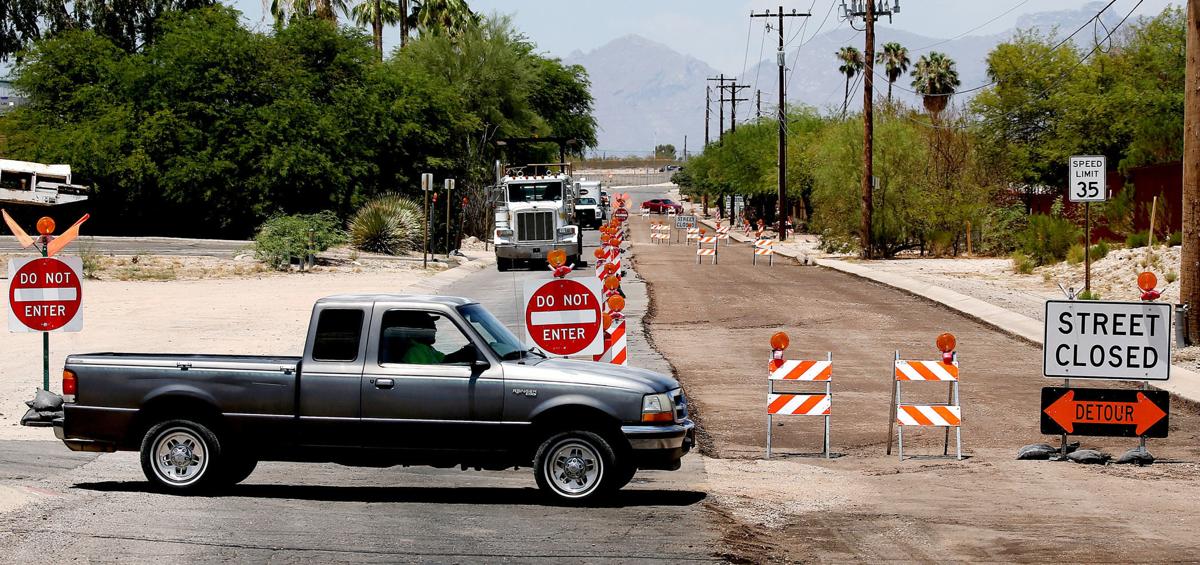Improving Tucson roads, boosting the police force and employee raises are some of the competing proposals being considered by the Tucson City Council as it decides its priorities for the next fiscal year.
But with revenue projections expected to be relatively flat — city officials estimate that there will be 3 percent year-over-year growth in sales-tax revenues — the seven-member council is divided on where those tax dollars should go while the makeup for the political body is set to change after November’s election.
At a late afternoon budget retreat last week, city officials offered the council a short list of possible spending priorities. They include raises for full-time employees, 20 new police officers, a reorganization of the fire department, as well as plans to replace aging equipment and facilities not covered by last year’s Proposition 100.
However, the vying proposals would cost a total of roughly $12.5 million, far outstripping the estimated $4.9 million in new revenue expected to flow into city coffers next year.
And, politics are expected to play a role in the council’s deliberations over competing budget priorities in the coming months.
At least two members of the council are retiring, as Mayor Jonathan Roths-child and Councilwoman Shirley Scott both announced they would not seek another term. A third — Councilwoman Regina Romero — is not seeking another term as she runs to be the city’s first Latina mayor.
Councilman Paul Cunningham is running for re-election, asking voters for another term.
Romero has previously signaled support for increasing salaries for the city’s lowest-paid workers, something not included in the $12.5 million figure given to the council last week.
City Manager Mike Ortega said that if the city were to increase starting salaries inside the city to a minimum of $30,000 annually, it would take three years to implement fully. And it would add $1.3 million to budget if adopted next year, rising to a $3.9 million annual cost by 2022.
The city staff proposal giving full-time employees a raise to better recruit new, experienced employees would cost the city $5 million annually, although that figure is tied to a 3 percent raise, and officials concede a smaller increase for employees is also being considered.
Councilman Steve Kozachik, re-elected in 2017, said employee raises can quickly morph into a political hot potato, noting he was opposed by the local police union in 2013 when he refused to support pay raises for police officers.
Even discussing a raise can be dangerous.
“Once you say it, it becomes an expectation,” Kozachik said.
Rothschild says the council needs to be cautious with the budget.
“There is not enough available this year to solve every wish,” Rothschild said.
“It doesn’t take long to dip into the red.”
He said he’d prefer not to commit to any long-term funding commitments, instead putting any additional revenue into the city’s reserves, also known as the rainy-day fund.
He hopes his colleagues won’t cave in to local politics.
“In the past, the council that I’ve sat with has been able to resist those pressures,” Rothschild said.
Cunningham wants to see at least some of the funding go toward paving more city streets rather than offering temporary fixes by patching potholes.
“We may have some opportunities where instead of being reactionary, we can probably take a look at a few additional lane miles (per ward),” Cunningham said. “I think we can afford it.”
It should be noted that the city’s bonding capacity — the municipal equivalent of a credit card — is at its limit, which restricts its ability to tackle large-scale, expensive infrastructure problems.
Cunningham said two voter-approved bond projects — Props 407 and 101 — made a sizable dent in a nearly billion-dollar backlog of street repairs, but it falls short of helping some Tucson neighborhoods.





